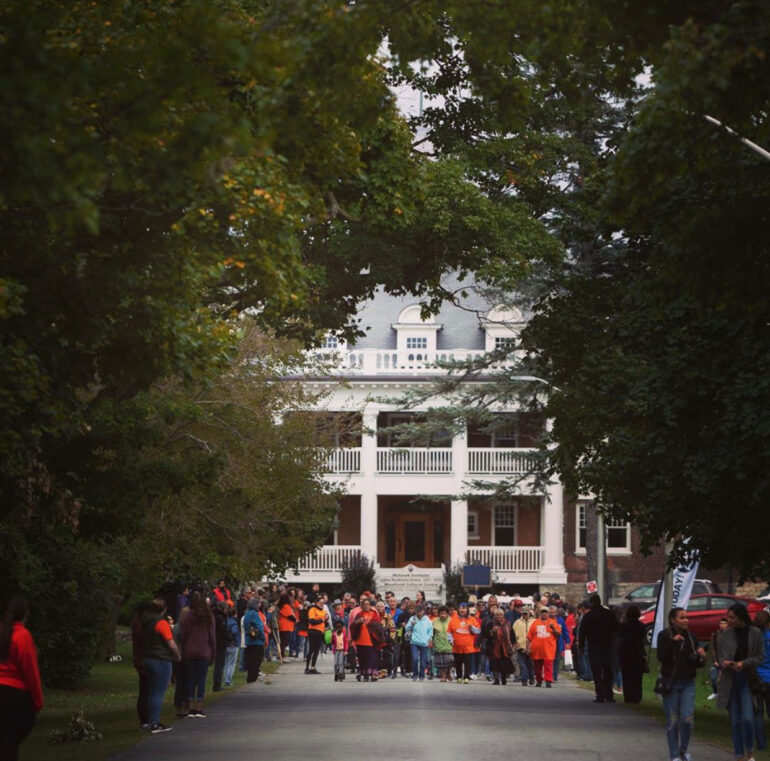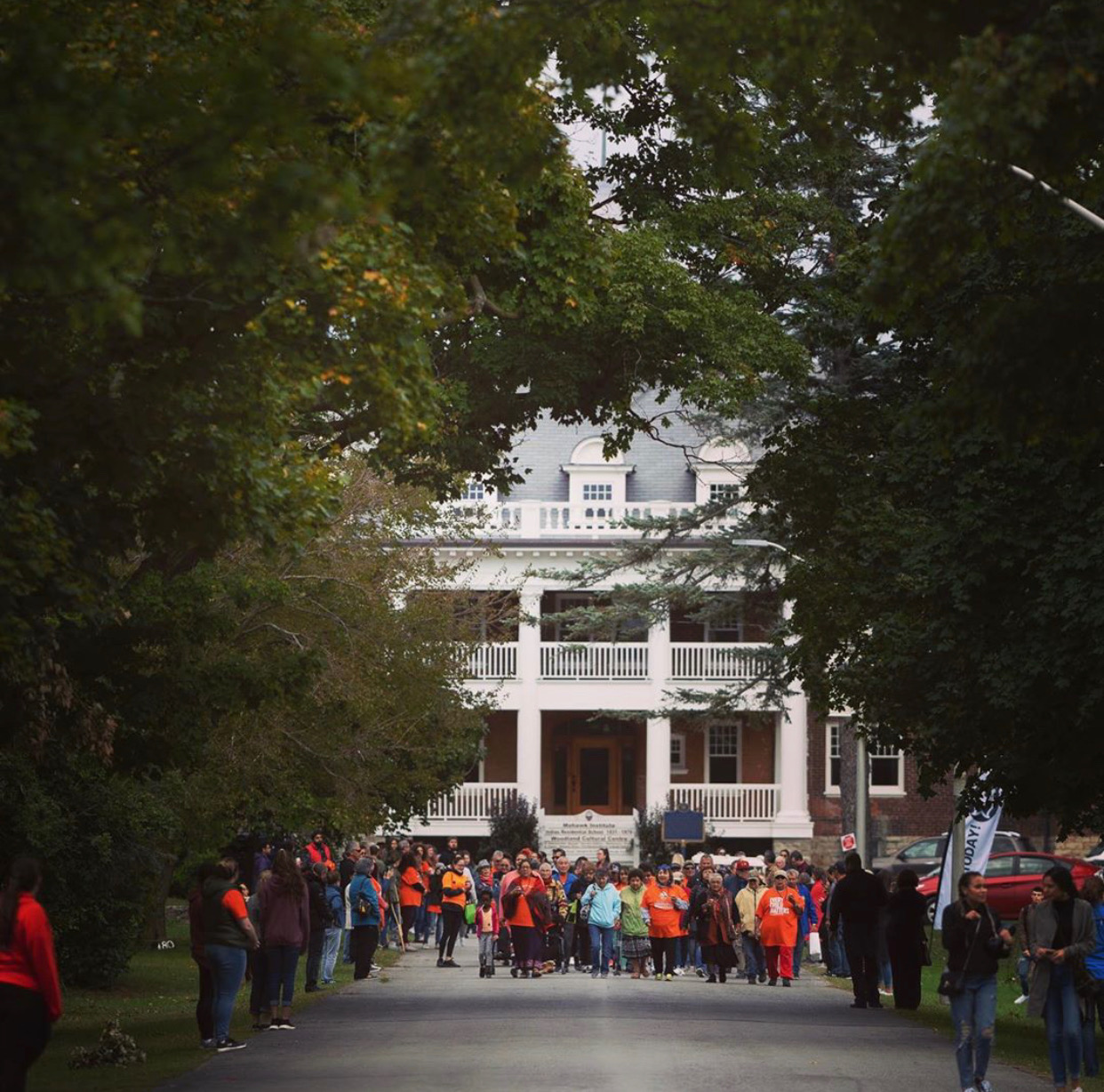
People gather outside of Mohawk Residental School in Brantford, ON to remember those that didn’t come home and those that survived.
Jennifer Kozak
Canadians wore orange shirts Sept. 30 to honour Indigenous survivors of residential schools.
“We honour those that survived and remember those that didn’t,”said Layla Black, program coordinator at the Woodland Cultural Centre, in a media conference live streamed on Facebook.
Because of COVID-19, organizations like Woodland Cultural Centre and National Centre for Truth and Reconciliation resorted to virtual events open to all Canadian youth in Grades 5 to 12 to honour residential school survivors, their families and communities.
Residential schools were religious that were government sponsored and designed to assimilate Indigenous children to white society.
The virtual event included Indigenous programming focusing “not only on the trauma but also on the beauty and the relevance of the culture, art, and tradition of Indigenous people,” Black said.
Traditional dance classes, art and virtual museums tours are all available to participants.
“People can also watch online our monthly survivor series interviews to give people firsthand knowledge of someone who experienced it,” Black said.
Although Orange Shirt Day started in 2013, its meaning dates back more than 100 years.
“Orange Shirt Day allows Canadians to come together to share the common message that we all recognize what happened to Indigenous children in residential schools,” Black said.
The day was inspired by Phyllis Webstad, who in 1973 at the age of six, attended St. Joseph Mission Indian Residential School in Williams Lake, B.C., wearing an orange shirt gifted to her by her grandmother.
At the school, the shirt was taken from Webstad and never returned. The devastating impact of losing her shirt and the many other abuses she suffered while at the school, Webstad felt like she didn’t matter as a young child.
This year’s slogan is “Every Child Matters” to remember every child who attended those schools, including those that never made it home.
“Today, we acknowledge the long-lasting, multi-generational impact of the residential school system on Indigenous communities, our province and our country,” Greg Rickford, Ontario’s Minister of Indigenous Affairs, said in a press release.
“For more than 100 years, Indigenous children across Canada were removed from their families and forced to attend residential schools, where they were stripped of their language and culture,” Rickford said.
The Woodland Cultural Centre hosting the virtual events is situated in Brantford, Ont., located on the grounds of Mohawk Institute Residential School.
The school operated for 142 years, making it the longest-running residential school in Canada. Woodland launched a “Save the Evidence” campaign to restore the school and maintain its educational tours.
Black said it’s important to share stories about the place that silenced Indigenous children. She said the institution and the system that operated it took away their identities, voices, culture, art, and beauty.
It’s now a place “where we can sing, dance and showcase our art,” she said.
“We had our first concert last week on the steps of the school, and we had a residential school survivor tell us that he never would have thought, while being at that school, he could experience that,” Black said.
Staff hoped the building would reopen its doors again this year, but fundraising efforts fell through due to the COVID-19. Staff at Woodland Cultural Centre are hopeful the school opened to the public in 2022.

